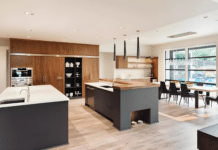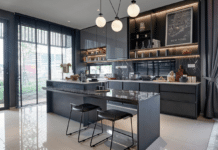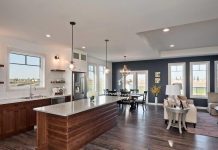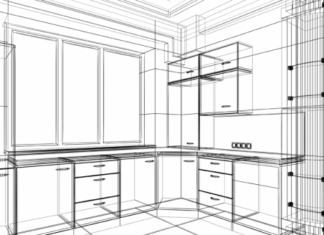Remodeling a kitchen can be a satisfying yet challenging home renovation. A new kitchen can update your home, make it more functional, and increase its resale value.
With so many remodeling options, it can be easy to overspend on a kitchen remodel project. Every homeowner who wants to renovate their kitchen must consider their kitchen remodeling budget.
How Much Should I Budget for a Kitchen Remodel?

There is no set range for the cost of a new kitchen, as it varies depending on the location and materials chosen.
For example, a kitchen remodel in the Midwest will be considerably cheaper than one in New York City.
HomeAdvisor says the average cost of a significant kitchen remodel for a midrange kitchen is $34,962. A minor renovation can cost as little as $4000, and a high-end one can cost well over $50,000.
The homeowner’s budget should be based not only on what they can afford but also on what they hope to recoup when they sell the house (if they plan to do so within five years).
With so many choices for a kitchen remodel, it can be challenging to stay within the budget. However, homeowners should stick to the budget as closely as possible.
Home renovation experts recommend allotting 20% of your budget for unexpected expenses, such as upgrading your electricity to code.
When kept to a budget within the house’s value, a kitchen renovation can yield around a 70% return on investment upon selling. This does depend on the features and materials chosen.
One of the biggest mistakes is spending more on the kitchen remodel than the home’s value can support. For this type of renovation, designing a kitchen that will appeal to most buyers will result in a better ROI.
The National Kitchen and Bath Association (NKBA) recommends budgeting 15-20% of the home’s value for a kitchen remodel. Otherwise, you will put too much into the renovation without getting the appropriate return.
For example, the kitchen remodeling budget for a $250,000 home should be within $37,000-$50,000.
The homeowner may have a wish list with all the desired upgrades, and finding alternatives within budget is possible. It will take some research. Some remodelers find that creating a spreadsheet with wants and must-haves is helpful.
Budget Research

The homeowner should research what is available to develop a realistic number. The first step is taking the kitchen’s measurements to calculate an accurate amount. Many online resources, magazines, and showrooms can give an idea of the desired style and cost.
One way to stick to an overall budget is to choose two or three options for cabinets, countertops, flooring, and appliances. This gives the homeowner flexibility within the budget to play around with options.
For example, suppose a specific flooring item costs more than initially budgeted. In that case, there may be room to save money on appliances to balance costs and stay within the allotted budget.
The more research the homeowner does before the renovation, the greater the chance of staying within the kitchen remodel budget. Last-minute changes can increase the cost of the kitchen if the homeowner is not mindful.
During the research process, the homeowner should ask the following questions about the kitchen remodel:
- How much kitchen space is needed?
- What works in the current kitchen?
- What does not work in the current kitchen?
- How does the kitchen function?
- Will the kitchen be used often for cooking? A professional-grade oven and range might be a consideration.
- Will a large family use the kitchen? A large refrigerator and plenty of storage should be considered.
- Will the kitchen be used for entertaining? A built-in bar and large island with seating are possibilities.
Thinking about how the area will be used will help determine the function and design of the kitchen. Whether the homeowner is renovating for their use or to resell will also influence the budget and design choices.
What to Include in a Kitchen Remodel Budget
The following list of items should be accounted for when remodeling a kitchen. The NKBA recommends the following percentages per item:
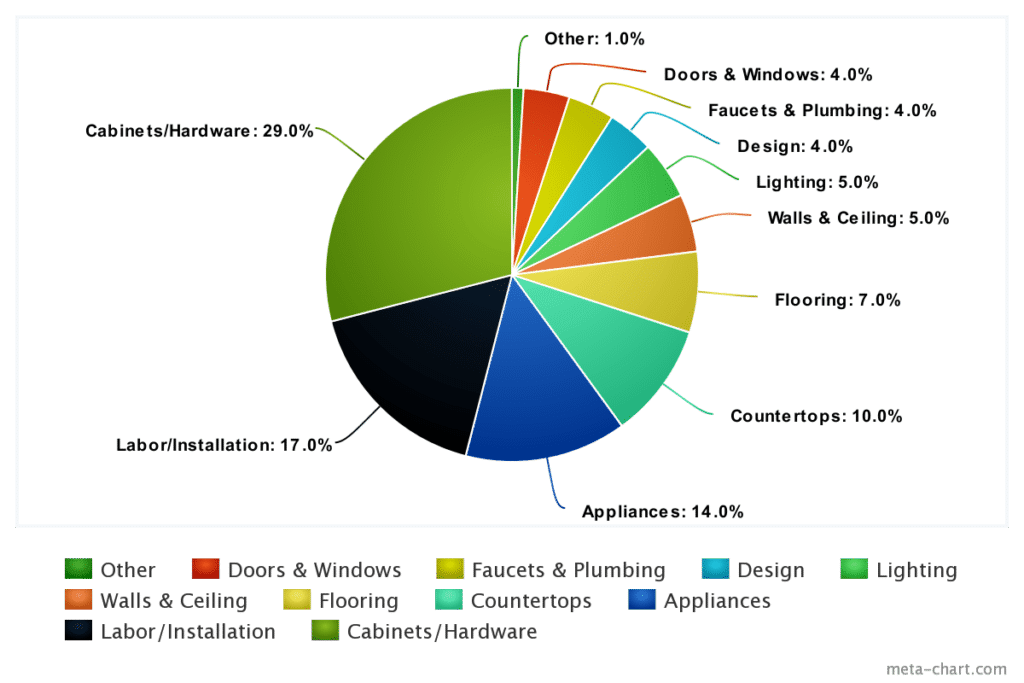
- Labor/installation – 17%
- Cabinets/hardware – 29%
- Appliances – 14%
- Countertops – 10%
- Flooring – 7%
- Lighting – 5%
- Walls and Ceiling – 5%
- Doors and Windows – 4%
- Faucets and Plumbing – 4%
- Design – 4%
- Other – 1%
These percentages will differ per renovation, but having an estimate of what to spend per item is helpful. The homeowner’s preferences will also dictate the percentage breakdown.
Installation
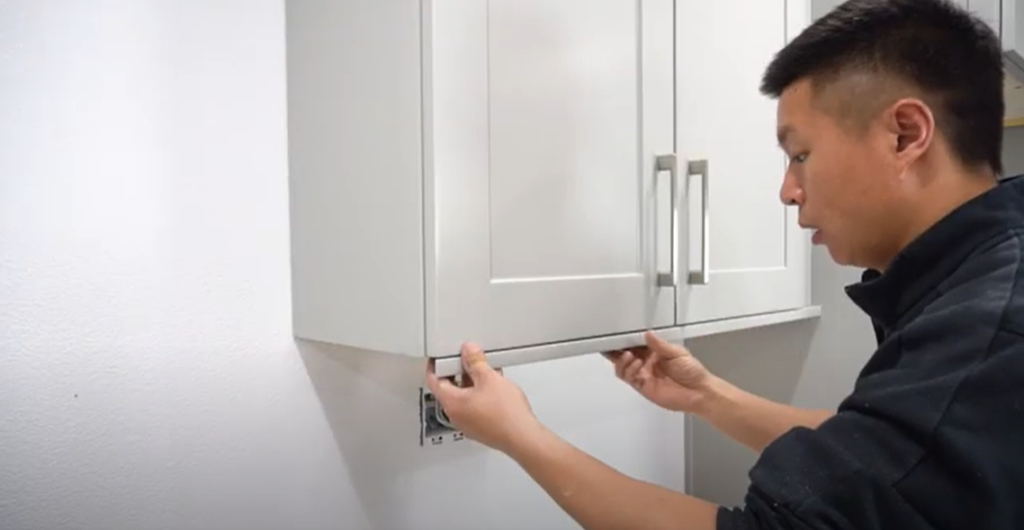
A kitchen remodel requires a variety of people to work together. A full-scale renovation will involve a general contractor, cabinet installer, plumber, electrician, and perhaps a designer.
Since an entire remodel is a lengthy process, all of this work must be coordinated. Some homeowners might be tempted to cut costs and do some work, but that will most likely result in a longer renovation process.
Cabinets and Hardware
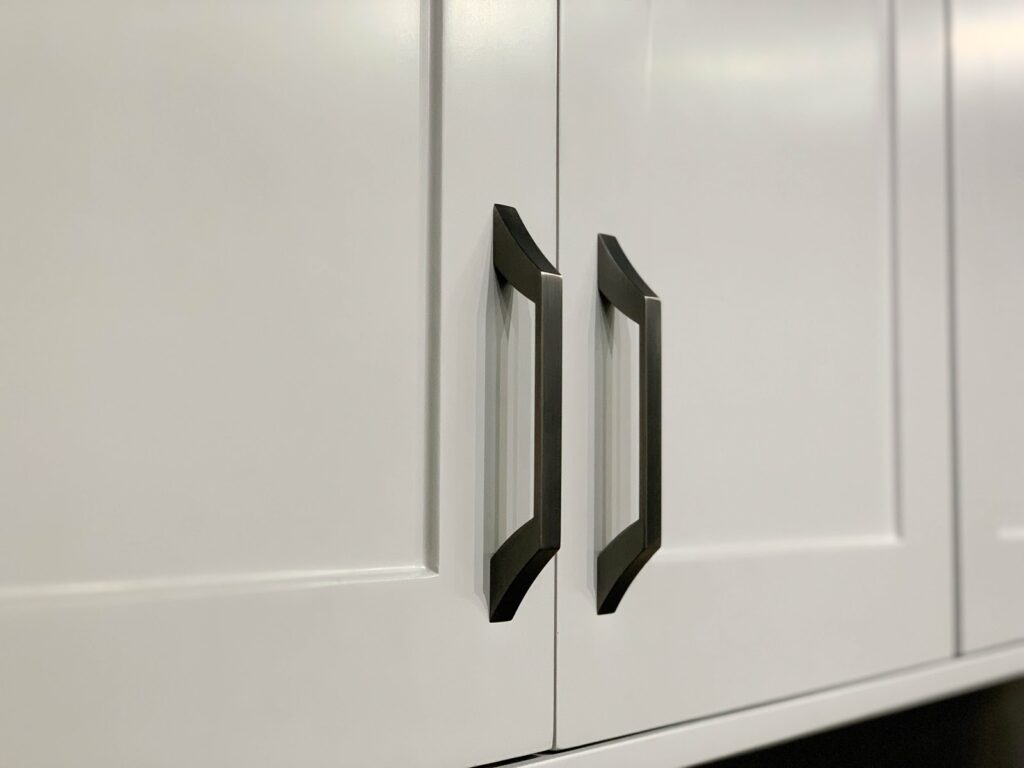
Since kitchen cabinets take up a large amount of space, they dictate the style of the entire kitchen and remain a central component of the home’s value.
Cabinets that meet the functional needs of the kitchen, as well as the aesthetics, will add to the kitchen’s value.
A quality cabinet can last over 20 years and has more functionality than old cabinets. Regardless of the kitchen’s size, cabinets can make the most of the space within the room.
Ready-to-assemble (RTA) cabinets are an option that can save homeowners money in their kitchen remodel budget compared to custom cabinetry.
RTA cabinets are made of quality materials durable enough to withstand wear. Many homeowners find that these cabinets give them the style and quality they want without spending the entire remodel budget on them alone.
The cabinet hardware needs to be updated as well. The metals in the kitchen do not need to match, so that the hardware can be a different color from the faucet, for instance.
Tip: Brass hardware can give your kitchen a custom, more expensive look.
Appliances
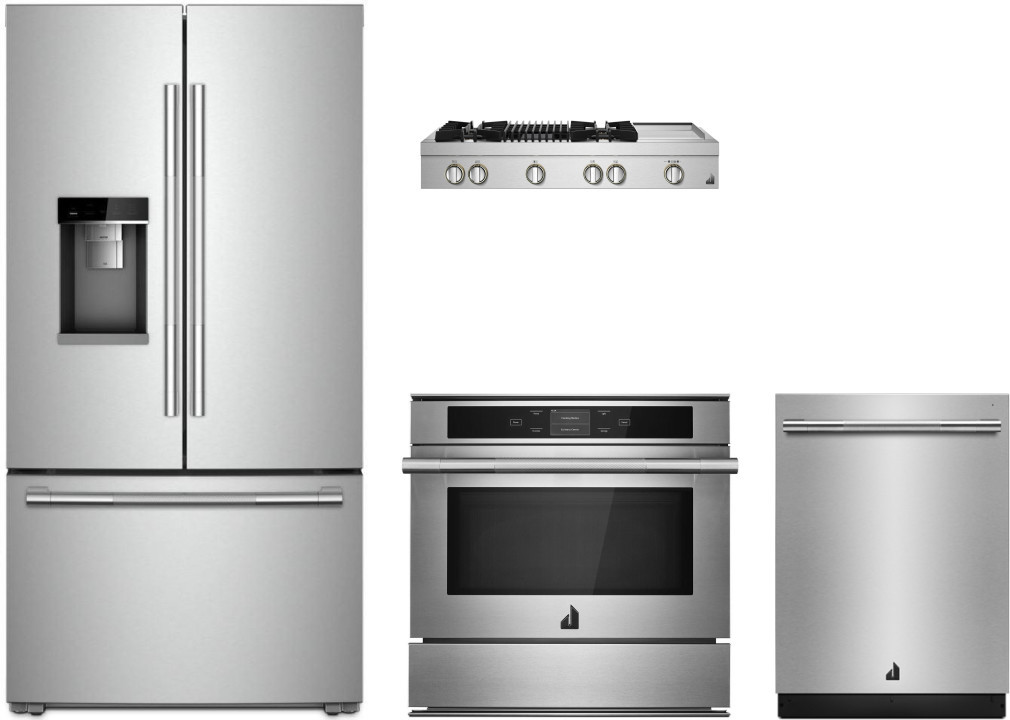
Appliances come at various prices and should be considered with the cabinets, as the two will comprise a large portion of kitchen remodel budgets. The homeowner must consider replacing a refrigerator in about 15 years, while a cooktop range will last longer.
If using a dishwasher is part of the homeowner’s daily routine, then spend the money on a quality one that will last. For owners looking to sell their house soon, stainless steel is the most popular choice among buyers.
Countertops
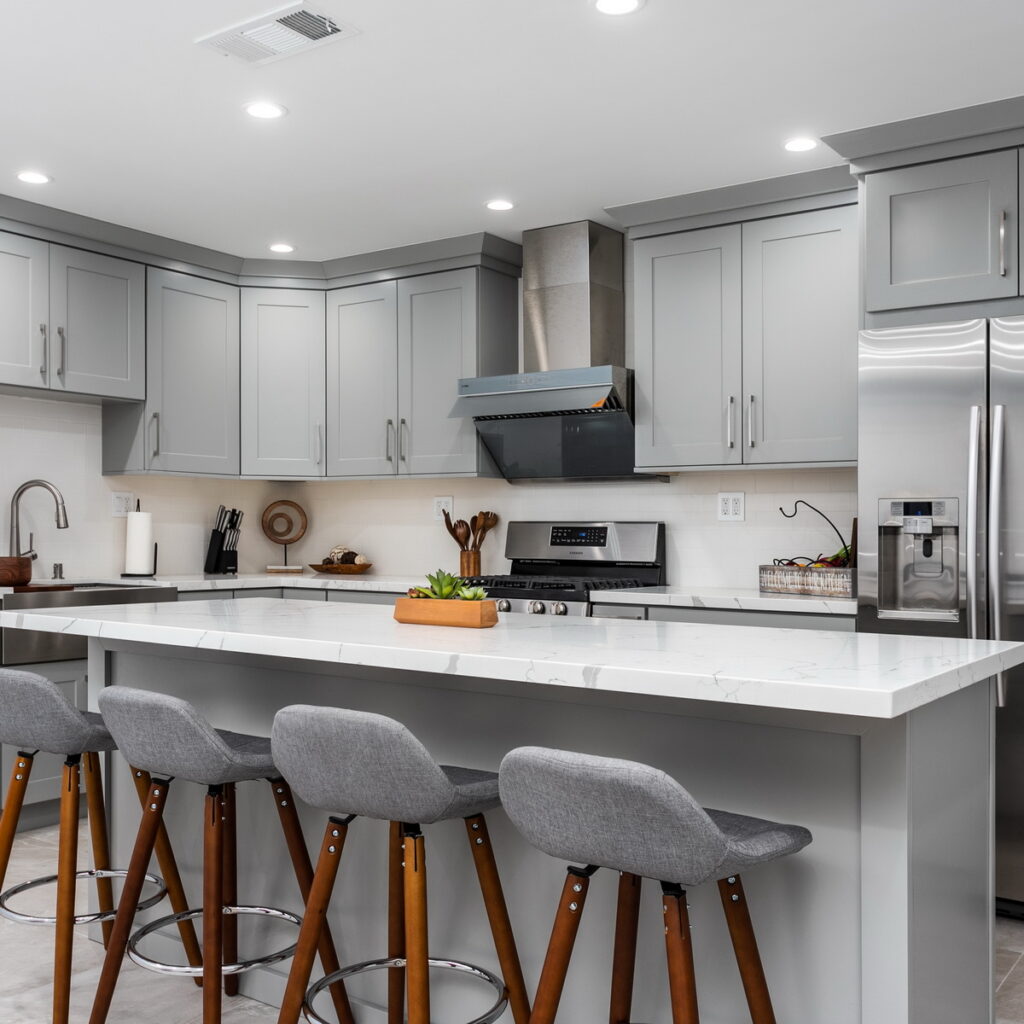
The countertops are the first noticeable difference in a kitchen remodel, in addition to the cabinets.
Countertop selection should consider maintenance, durability, and design. For those who cook often or have a family, a solid countertop will be easier to keep clean.
To add style to the kitchen, countertops can be made of various materials. The chosen material should depend on the budget.
A quartz countertop costs considerably more than a laminate one, but it will add value to the kitchen renovation. Many options are available that can be a focal point in the kitchen without breaking the bank. The same goes for backsplashes.
Flooring

Hardwood, laminate, vinyl, and tile….there are many great flooring choices to match the kitchen’s style and the homeowner’s budget. The flooring in a kitchen often gets a lot of use.
For those on a tighter budget, porcelain tile is a good choice because it does not chip or crack easily and is a good value for the money.
Choose a classic style, such as white subway tile or natural stone, for the kitchen, and it will not look outdated in a few years. Install the same flooring throughout the house, such as hardwood, for a continuous flow.
Lighting
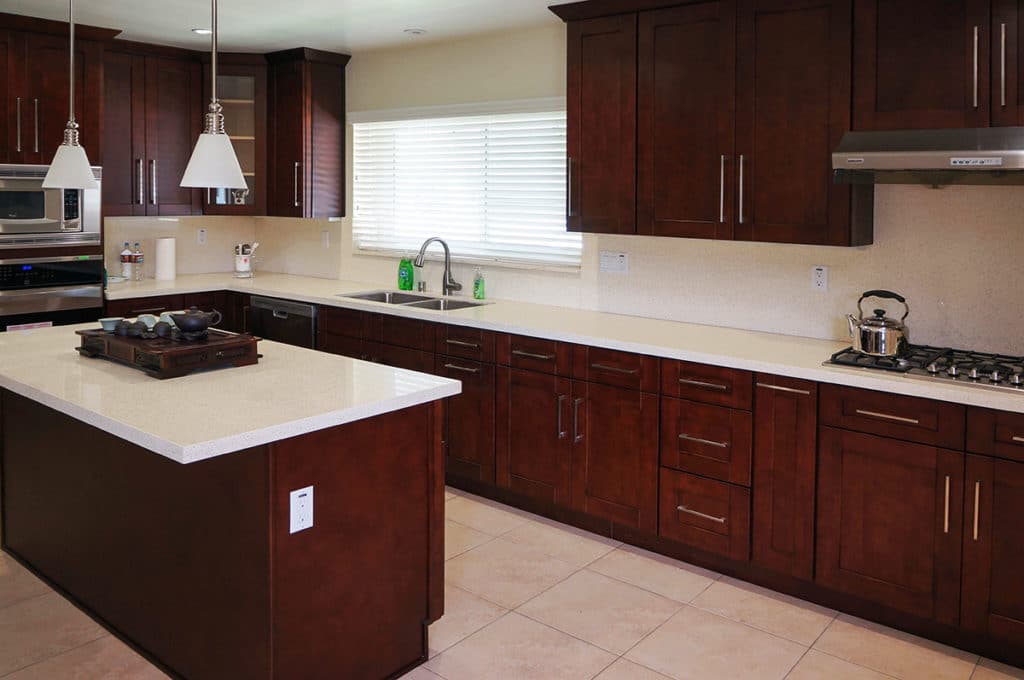
A lighting plan can create an outstanding kitchen remodel. Many older homes only have a small window over the sink and one or two ceiling lights, which do not provide enough light in a room.
Modern fixtures will update the lighting in any kitchen, and dimmer switches will help to control the lighting throughout the day.
Undercabinet LED task lighting, pendant fixtures, and recessed lighting are nice additions to an older kitchen. Eco-friendly options will save money and last longer.
If the kitchen lacks natural light, lighting is essential in keeping the room from being too dim.
Walls, Ceilings, Doors, and Windows
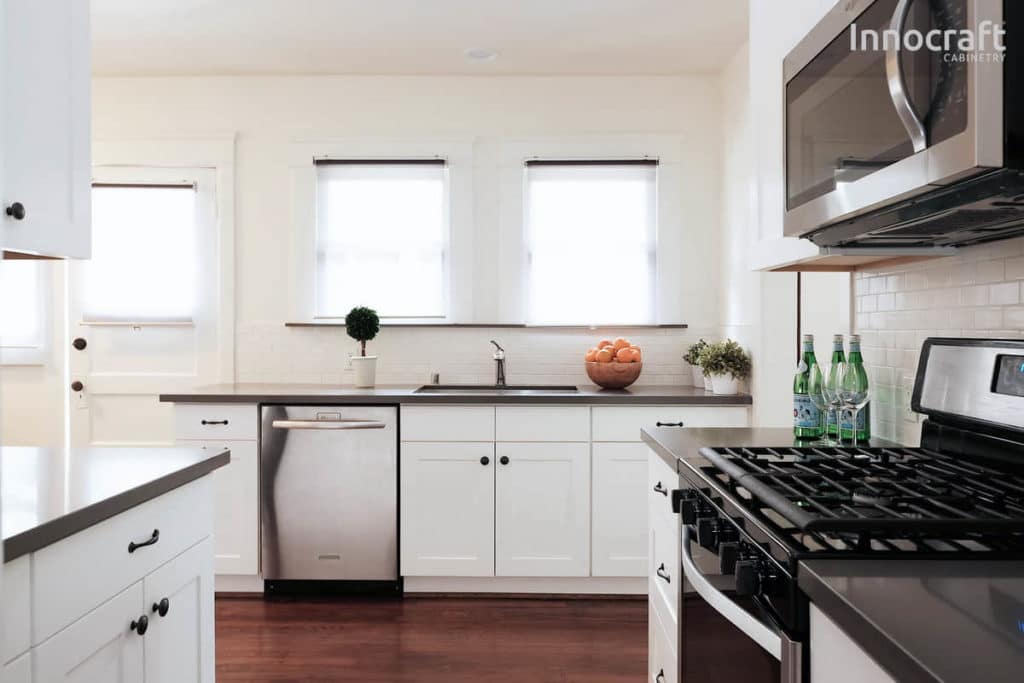
During a kitchen renovation, walls and ceilings usually need a new coat of paint. Since the kitchen gets a lot of use, the walls are typically dirty quickly and will benefit from a fresh coat of paint.
Most homeowners can do it themselves, but a professional may be needed depending on the difficulty.
Any outdated windows or doors should be replaced to increase insulation and save energy costs. This is especially true in older homes. A new paint job will refresh the trim around the doors and windows.
Faucets and Plumbing

Depending on the kitchen age, plumbing may need to be reworked, moved, repaired, or replaced. Older homes might have worn-out pipes and drains that need to be updated.
Replacing an older sink, faucet, and fixtures with more modern ones is not a significant expense, but it can make a difference in a kitchen remodel. A nice feature is a single basin or drop-in sink with a built-in soap dispenser.
Design
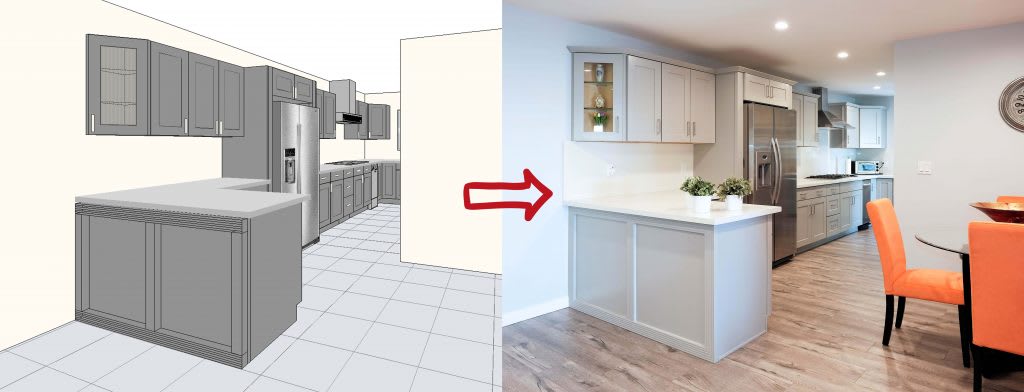
The design of the kitchen is essential to ensure that it is functional and aesthetically pleasing. Hiring a designer might be necessary for a complete overhaul, but it can be expensive.
A FREE design service can help buyers get started and give them options they might not have previously considered.
A kitchen renovation should reflect the homeowner’s lifestyle, cooking, space, and storage needs. Many homeowners wonder how much to budget for a kitchen remodel, but researching and creating a plan (and sticking to it!) will help prevent overspending.


